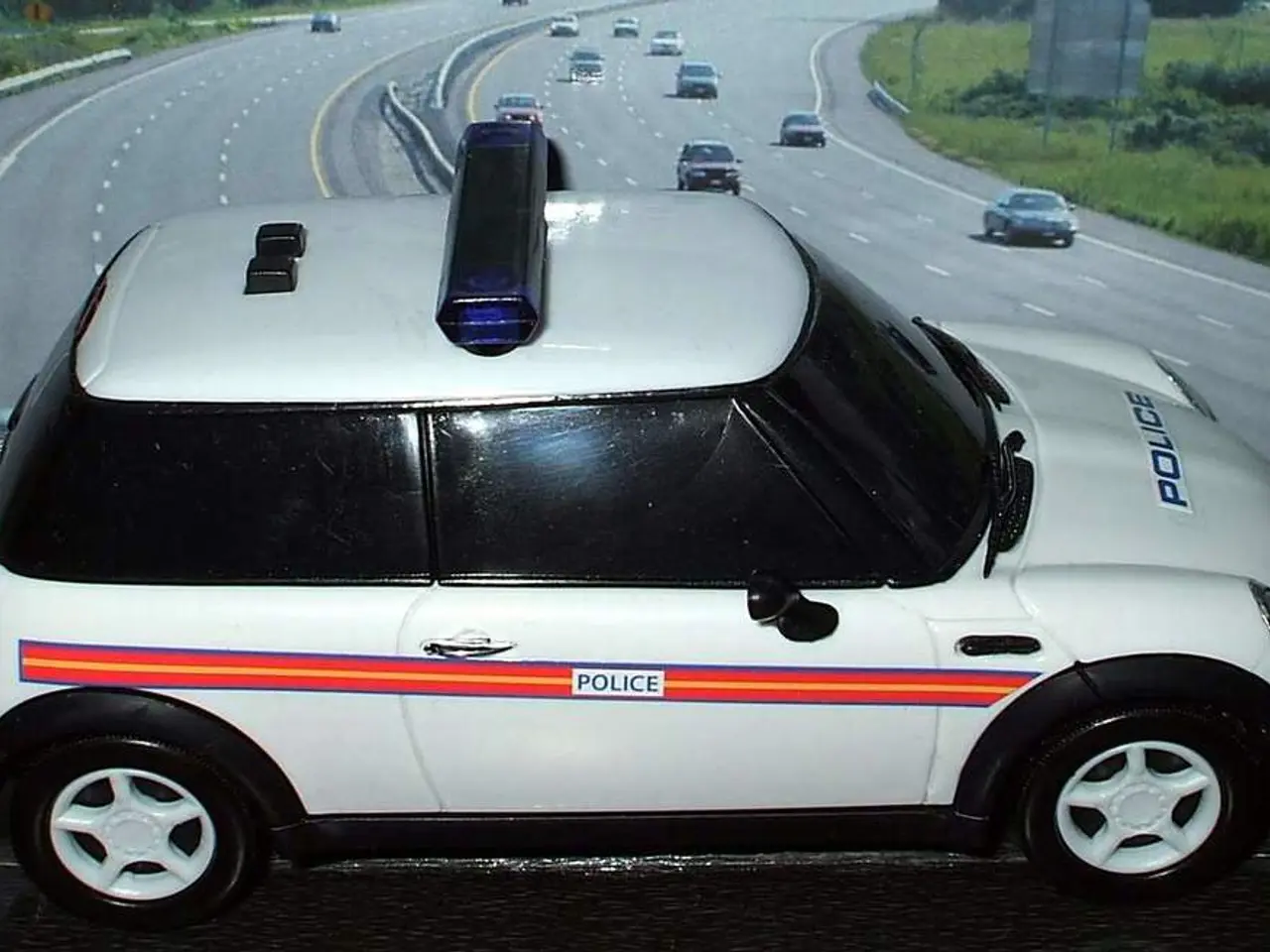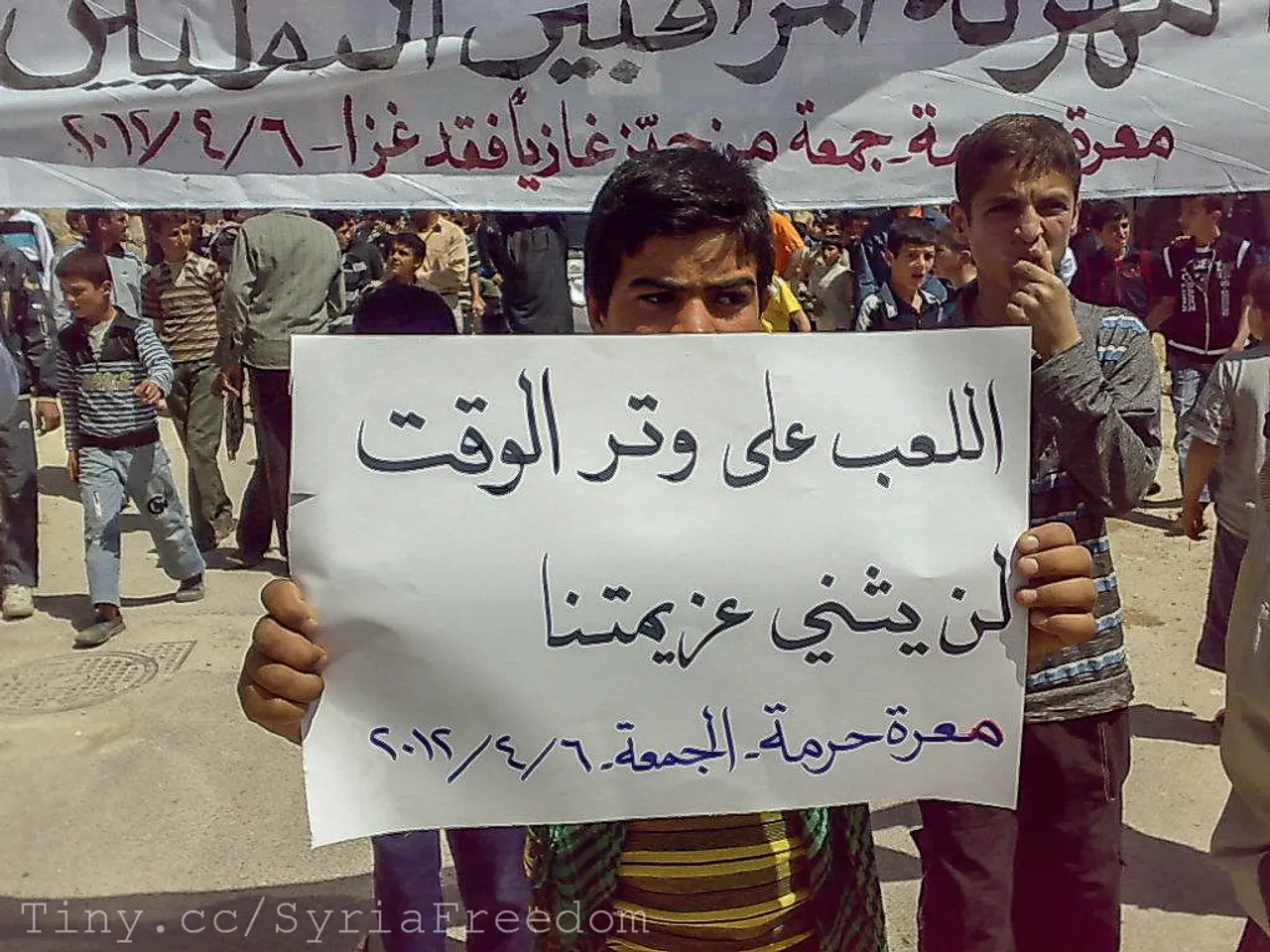Trump's called upon to take control of Washington D.C., claims slain Congressional intern's mother
In recent events, the city of Washington, D.C. has witnessed a significant shift in its law enforcement landscape. The temporary federal takeover of the D.C. police force, initiated by President Donald Trump, is currently underway, following his declaration of a crime emergency on August 12, 2025.
The takeover, which is in effect for a 30-day period, involves the deployment of the National Guard and federal law enforcement under the control of Attorney General Pam Bondi. This move comes in response to a surge in violent crime, particularly homicides and carjackings, in the city. However, recent crime statistics paint a different picture.
According to police reports, violent crime in Washington, D.C. has been on a steady decline. In the past two years, violent crime has fallen dramatically, with overall violent crime dropping 26% in the first seven months of 2025. Assaults with a dangerous weapon have tumbled 20%, and robberies are down nearly 30%. Even carjackings, a concern that sparked the initial call for federal intervention, have seen a 68% decline since 2023.
Despite these improving statistics, President Trump has been vocal about his concerns regarding crime in Washington, D.C., stating that it is out of control. He has even proposed long-term federal control and extensions beyond the initial 30 days to maintain a federal law enforcement presence, calling it a "long-term takeover" of the D.C. police force.
However, this proposal faces significant opposition from local D.C. leadership, including Mayor Muriel Bowser, who condemned the move as an "authoritarian push." The city has complied with the immediate orders, but the long-term federalization of the D.C. police force remains a contentious issue.
One obstacle is the legal framework. Under the Home Rule Act, the president can only temporarily federalize the D.C. police force for up to 30 days without further congressional approval. Reports suggest that Trump may attempt to bypass Congress by declaring a national emergency to prolong federal control, but this approach is uncertain and controversial.
As the situation evolves, Trump continues to seek new legislation or emergency powers to extend federal oversight, while local officials resist permanent federalization. The temporary federal takeover is a response to rising crime, but the question remains whether it is a necessary or politically motivated move.
In the meantime, former crime analyst Asher has spoken out, stating that crime is improving in Washington, D.C. Homicides have fallen 12% in the first seven months of 2025, and overall, violent crime is at a 30-year low. The future of the D.C. police force remains uncertain, as the debate over federal control continues.
Summary of Status and Obstacles:
| Aspect | Details | |--------------------------|-----------------------------------------------------------------------------------------------------| | Implementation status | Temporary federal takeover for 30 days is active | | Federal agents involved | National Guard and federal law enforcement under Attorney General Pam Bondi's control | | Legal basis | Home Rule Act allows 30-day temporary takeover | | Potential extension | Trump seeks long-term extensions or national emergency declaration for federal control | | Local opposition | D.C. Mayor opposes federalization, calls it authoritarian | | Crime context | Violent crime reportedly low despite claims of emergency | | Key obstacle | Legal limits on federal control duration, political resistance |
The temporary federal takeover of the D.C. police force, instigated by President Trump due to his declaration of a crime emergency, has raised questions about its necessity and political motivations, given the recent decline in violent crime in Washington, D.C., as indicated by a 26% drop in overall violent crime in the first seven months of 2025.
This controversy stems from the legal framework, as the Home Rule Act only allows for a 30-day temporary takeover without further congressional approval, posing a significant challenge to Trump's proposed long-term federal control and extensions of federal law enforcement presence in the D.C. police force.







